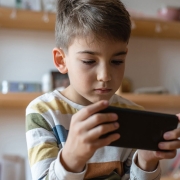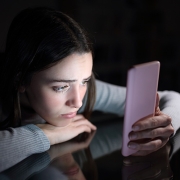
Article at a Glance The flu season in Utah is severe and early this year, with statewide hospitalization rates rivaling last year’s peak. A “mismatched” flu strain is hitting infants and the elderly particularly hard, adding pressure to local healthcare systems. Key strategies for protection include getting the flu vaccine, practicing strict hand hygiene, and … Continue reading “10 Pediatrician-Approved Tips to Protect Your Child During Flu Season in Utah”

Article at a Glance Measles is highly contagious, staying active in the air for up to two hours. One in five unvaccinated people who contract measles will require hospitalization, and complications can include permanent hearing loss, pneumonia, or brain swelling. Symptoms—including a high fever, cough, and runny nose—typically appear seven to 14 days after infection, … Continue reading “Pediatricians Answer the Top 8 Measles Questions from Utah Parents”

Childhood obesity is a growing concern in the United States, with nearly one in five children and adolescents affected, according to the Centers for Disease Control and Prevention (CDC).

Every day, teens are bombarded by alarms, alerts, and the endless scroll, making it harder to concentrate, even for simple tasks.

When asked if he ever sees kids using screens to avoid stress or emotions, Dr. Matt Allen has an emphatic answer.

In Utah, kindergarteners and 7th graders have to be up to date on their immunizations before they can start school. If your child is not up to date, schedule an appointment now to beat the rush in August. Because of high demand, it is often hard to fit in last minute appointments. To attend kindergarten, … Continue reading “Beat the Rush for Kindergartener and 7th Grader Immunizations”

In exam rooms across the country, pediatricians are seeing a troubling trend: a rising tide of anxiety in children and teens. While the COVID-19 pandemic amplified mental health challenges for youth, many experts say the spike began long before lockdowns and masks—around the time smartphones became a fixture in daily life.

It’s time that parents wake up to the fact that sleep deprivation among youth is largely triggered by increased dependence on smartphones and social media.

Picture a group of teenagers gathered in a living room—yet each sits silently, eyes locked on a screen, thumbs scrolling in unison. They’re together, but not truly with each other.

According to a Pew Research Center report, up to 95 percent of teens aged 13–17 confirm using a social media platform. Fully 35 percent of teens say they are using at least one of them “almost constantly.” In today’s digital world